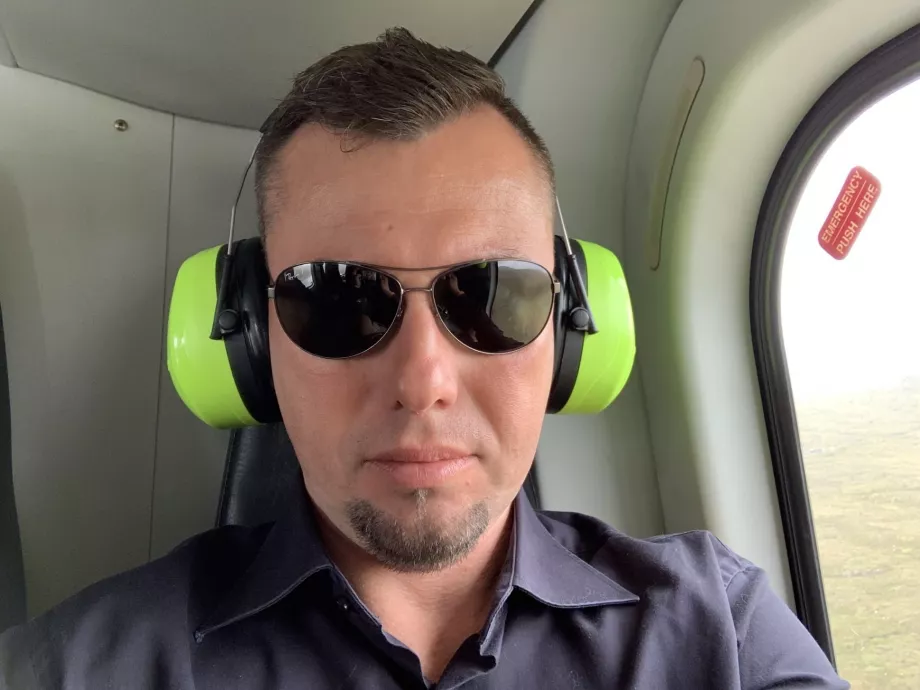
Getting around South Korea


South Korea has a sophisticated and high-quality public transport system, as well as roads and highways. Despite the minor differences from transport in Europe or America, you will quickly get used to the Korean system and find that travelling here is very easy even for foreign tourists.
In South Korea, you can take advantage of domestic air travel, high-speed trains and local railways, modern long-distance buses and public transport.
By car in South Korea
Although the public transport system in Korea is sophisticated and widespread beyond the major cities, if you want to explore the countryside, mountainous areas and coastline of Korea, renting a car simply remains the most efficient and convenient option.
Even foreign visitors can rent a car in South Korea without much paperwork.
For detailed information on travelling by car, see the chapter Car rental South Korea.
Domestic air transport
Despite South Korea's relatively small size and good land transport, there is also a busy domestic air service. In total, there are 15 airports in South Korea with scheduled services.
Flying by plane within the mainland is rarely worth the time, but the cost is fully competitive with trains and buses on some routes, especially if you are travelling with hand luggage.
By air within the mainland
Seoul-Gimpo GMP Airport acts as the main hub for domestic flights, with Jeju Island and Busan the most common destinations. This route is flown 2-3 times per hour and one-way tickets, when purchased at least a month in advance, start at 25 usd.
From mainland destinations there are also flights to Ulsan, Gwangju, Muan and Pohang.
The mainland routes are mostly served by Air Busan, Korean Air, Jin Air and Jeju Air. Hi Air adds flights to smaller cities.
The world's busiest Seoul - Jeju route
Korean domestic aviation has held one world number one for several years. The route from Gimpo Airport in Seoul to the popular holiday island of Jeju is the world's busiest ever.
The roughly hour-long route sees up to 200 flights a day in peak season. This means that the route has, without exaggeration, shorter intervals than, say, the Seoul metro.
The average price of a return ticket from Seoul to Jeju is between 100 usd and 180 usd.
The cheapest tickets are usually offered by T'Way Airlines, Air Busan, Jeju Air and Jin Air, with Korean Air, Asiana Airlines and Air Seoul offering the most connections.
Trains and express trains
South Korea has over 5,000 km of rail lines connecting most major cities. However, local lines to rural areas are minimal, so the railways in Korea function mainly as a means of fast, long-distance travel.
The Korean railway system is very modern, with new, clean and very reliable trains. The rail network is divided into conventional and high-speed lines.
High-speed trains in the Republic of Korea can be taken on the following sections:
- Seoul - Cheonan - Daejeon - Daegu - Ulsan - Busan (max. speed 305 km/h)
- Seoul - Cheonan - Iksan - Gwangju (max. speed 305 km/h)
- Seoul - Manjong - Pyeongchang - Gangneung (max. speed 260 km/h)
- Seoul - Wonju - Yeongju - Gyeongju - Busan (max. speed 260 km/h)
There are two rail carriers operating in South Korea.
Korail with KTX high-speed trains
The state-owned company operates both KTX high-speed trains and conventional stop-and-go services on all lines in the country.
Korail divides the trains into several groups, and you can already deduce how fast and good the service will be when you book your ticket:
- KTX-Sancheon - state-of-the-art high-speed trains for speeds above 300 km/h
- KTX-I - older high-speed trains based on French TGV units for speeds above 300 km/h
- KTX-Eum - modern high-speed trains for secondary high-speed lines with speeds up to 260 km/h
- ITX - high-capacity modern trains for speeds up to 200 km/h
- Saemaul - a conventional train with locomotive-drawn carriages, the fastest trains until the high-speed trains became operational, today they run on secondary lines as express trains
- Mugunghwa - conventional train with locomotive-drawn coaches, slowest stopping services, stopping at most stations along the route
- Nuriro - similarly slow trains to the Mugunghwa, on which more modern units are deployed
Tickets and prices
Tickets for the train can be bought online at the official website letskorail.co.kr or at the station before departure.
Traditional manned ticket counters and ticket machines in English are available everywhere. Some machines work only for Korean credit cards, while others work only for foreign credit cards, but they are always clearly marked.
Ticket prices are equally expensive online and on-site, however if you are travelling by express train at busy times (morning, afternoon, Friday, Sunday) and need to take the train at the exact time, we recommend buying online. It happens that some trains sell out several days in advance. However, this is not a big problem as there are plenty of trains on the main lines.
You can also use the Korail app (Google Play / App Store).
There is no need to print a ticket purchased online. You just need to have a QR code saved on your mobile phone, but in most cases you won't even need it. You will always have the car number and seat number marked on your ticket. The conductor just walks through the train and checks whether the seats you have purchased are occupied. Tickets are only checked if there are any discrepancies.
In addition, all trains are equipped with free wi-fi, so access to the ticket on your phone is assured even without a Korean SIM card.
Examples of ticket prices and journey times:
- Seoul - Busan
- KTX express train runs 2:40 and costs 59 800 krw
- The ITX express train is 4:45 and standing 42 600 krw
- Mugunghwa stop train runs 5:50 and stands 28 600 krw
- Seoul - Mokpo: only KTX express trains run on the route with a journey time of approx. 2:40 and a price 53 100 krw
- Seoul - Yeosu: only KTX express trains run on the route with a journey time of approx. 3:15 and a price 47 500 krw
- Seoul - Gangneung: only KTX-EUM high-speed trains run on the route with a journey time of approx. 2:00 and a price 27 600 krw
- Seoul - Pyeongchang: only KTX-EUM high-speed trains run on the route with a journey time of approx. 1:30 and a price 19 700 krw
- Busan (Bujeon) - Mokpo: only Mugunghwa trains run on the route with a journey time of approx. 6:40 and a price 24 500 krw
SRT
Super Rapid Train (abbreviated SRT) is a private carrier operating only high-speed trains to/from Seoul on major Korean routes.
Unlike the state-owned Korail carrier in Seoul, it does not stop at the main Seoul Station in the city centre, but instead stops at Suseo Station on the southeastern outskirts of the city. SRT trains operate on the following routes:
- Suseo (Seoul) - Cheonan - Daejeon - Daegu - Ulsan - Busan
- Suseo (Seoul) - Cheonan - Iksan - Gwangju - Mokpo
On the route from Seoul to Busan, there are up to 40 trains a day, while there are 20 trains a day to Mokpo.
Tickets and prices
As with the Korail, tickets can be purchased online at etk.srail. kr and at stations at ticket offices or vending machines. The price is the same for online and on-site purchases.
The more distant stations in Seoul compensate for the lower ticket prices than Korail:
- Seoul Suseo - Busan: 52 300 krw
- Seoul Suseo - Mokpo: 46 100 krw
Long-distance buses
You can take a bus to virtually anywhere. Buses run 15 minutes to the larger cities and an hour to the smaller towns and villages.
Long-distance buses are very comfortable and unlike European or American buses, they have one less seat in the row (2+1 layout), which creates much more space.
On routes where express trains also run, buses compete on price. However, especially in tourist attractions along the coast, but also in the mountains, buses are the only possible form of transport.
Long-distance buses in South Korea are divided into two types: ExpressBus and InterCityBus. There are always several bus stations in major cities, which we describe in our guide to Seoul or our guide to Busan, for example.
InterCity buses even compete with ExpressBuses on some routes, so it's always worth comparing timetables and prices on the two websites below.
Expressbus
Express buses run on major routes between Korea's biggest cities (but especially from Seoul) and often compete with trains. They mostly run on motorways and have minimal stops.
Tickets can be purchased before departure at the bus station or on the kobus.co.kr website. Even though several companies run on different routes, you don't have to visit different websites or kiosks. Everything is integrated into a single ticket office or a single kobus.co.kr website.
On the main routes, buying tickets in advance is not necessary. There are a large number of connections and it is virtually impossible to find all of them occupied.
Prices are always set per route and are the same for all companies. They are only graded according to the quality of the buses, which are divided into Economy, Excellent and Premium. In practice, however, the differences are small and the Economy buses are already excellent in terms of comfort and are a far cry from, for example, European or American long-distance connections.
Examples of prices (cheapest Economy class) and journey times:
- Seoul - Busan: 4 hours, price 25 400 krw
- Seoul - Mokpo: 4 hours, price 23 100 krw
- Seoul - Sokcho: 2:20, price 16 400 krw
- Seoul - Pohang: 3:40, price 22 100 krw
InterCityBus
InterCity's similarly comfortable long-distance buses run to lesser cities, but they still stand above the level of suburban transport and specialize in longer routes, much like express buses. In real life, the passenger will not be able to tell much difference between an InterCity and an Express bus.
Tickets can be purchased before departure at the bus station or online at intercitybuse.tmoney.co.kr. Even though several companies run different routes, you don't have to visit different websites or kiosks. Everything is integrated into a single ticket office or a single website intercitybuse.tmoney.co.kr.
InterCity buses are often very frequent.
Examples of prices and journey times:
- Seoul - Sokcho: 2:20, price 20 600 krw
- Seoul - Donghae: 2:50, price 25 600 krw
- Busan - Wando: 3:40, price 36 900 krw
- Busan - Mokpo: 3:40, price 34 600 krw
- Busan - Gangneung: 5:00, price 39 900 krw
Unlike express buses, InterCity buses do not only run from Seoul, but from all major Korean cities at all times throughout the country.
The InterCity buses run from all over the world, from all over the world to all over the world.
Korean cities have a well-developed public transportation system. There are subways in 6 cities (Seoul, Busan, Daejeon, Daegu, Gwangju and Incheon). Hundreds and thousands of bus lines cater for the rest of the urban and suburban transport.
Tram services do not operate in any city in Korea.
Transport cards
If you know in advance that you'll be moving in and around multiple cities and that you plan to use public transport more extensively, we definitely recommend buying a T-Money (Seoul) or Cashbee (Busan and the south of the country) transport card right at the airport.
You can also use the Wowpass card for transport, which, unlike T-Money or Cashbee, can be topped up online via a mobile app.
Wowpass
The Wowpass multi-function card is a reloadable payment card that you load credit onto and then can pay at all shops and services in Korea.
This can be very relieving as many services accept Korean but not foreign credit cards.
In addition, you can also load T-Money transport credit onto your Wowpass card and no longer need to purchase the T-Money / Cashbee card below separately.
When you reload your card, you reload two balances - for regular payments and T-Money for paying for transportation across the country.
The standard card costs 5 000 krw and can be ordered online before you travel to Korea at wowpass.io/purchase.
You can then pick up the card at the location of your choice - all international airports or ports.
You can top up your card at Wowpass kiosks located in most metro stations or train stations, or more conveniently via the mobile app (Google Play / App Store).
T-Money / Cashbee
Both cards are compatible with each other and work in all Korean transport systems.
First, you need to purchase a blank T-Money card (or its tourist version Korea Tour Card) or Cashbee for 4 000 krw.
You then top up the card to your chosen amount at any ticket machine across the country or at any 7-Eleven or emart24 outlet, which can be found everywhere including the smallest villages.
If you expect to take at least 4 public transport rides a day, expect to spend around 6,000 to 7 000 krw a day.
Then you use the card to pay at metro turnstiles (always when entering and leaving the station) and on all buses across the country. On city and suburban services, you always board through the front door, and "tap" your card at the validator near the driver. Don't forget to beep your card at the validator near the back door when you get off. This is the only way to calculate your fare correctly.
Ferries
The network of ferries and boats that connect coastal and outer islands to the mainland and each other is very extensive in Korea.
Individual shipping companies and ports usually don't have their own websites, so finding out timetables in advance is a rather difficult discipline. The fact is, however, that ferry tickets never need to be bought in advance, they are always enough to buy on the spot before the cruise.
Prices are subsidised and therefore low. Generally and very roughly, a 1 hour ferry ride works out at about 5 500 krw.
The biggest ports are Mokpo, Incheon, Donghae, Pohang, Wando. But looking at the map it is clear that there are hundreds of boat routes along the whole peninsula.
Any questions left?
If you have any questions or comments about the article...
3 comments
New t money card - there is now a Wowpass that you can use instead of the t money card. It can be recharged with the card. Can be arranged in advance and picked up at the airport. Just book on their website.
That's not really big news, it's just that no one has wanted to put it in the guidebook yet.
Well now they have a limited offer: airport package. Free card + 10 000 KRW directly loaded in the T money card balance section + discounts in shops (lotte mall etc.)

Update on the T-money card (10/2024). I blank could be bought at convenience stores (CU, GS25, 7Eleven). Blank ones cost 4000 KRW, for some (like the ones with Kakao Friends written on them) they want 5000 KRW. Blank cards could be paid for with a credit card. But wherever we topped up the fare, they wanted cash, and that was in those shops too. Very often they also have "recharging T-money with cash only" in English stuck on the counters. I don't know if this is new, so far it was written everywhere that you can recharge and pay with a card in those combi shops. T-money also works on all buses on Jeju.
As far as I know, it never said anywhere that it can be topped up with a card in shops.
I just read somewhere recently that they should already be able to be recharged by card in some metro stations, but I don't know where and I can't find it. There's a mobile app, but it has a lot of drawbacks, so I haven't even tried it.


As of September 2025, you can now pay for the metro from the ICN with a card - Revolut worked for me.